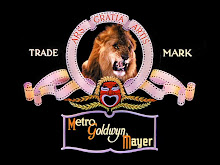 By the late '20s, William Haines' screen persona had settled into a formula, giving his films the same sort of predictable inevitability other MGM formula stars of the day excelled in (like Lon Chaney and Greta Garbo).
By the late '20s, William Haines' screen persona had settled into a formula, giving his films the same sort of predictable inevitability other MGM formula stars of the day excelled in (like Lon Chaney and Greta Garbo).In Haines' films, he played an obnoxious cut-up who pursued women dubious of him and squandered his talents and duties until he fell from grace - at which point he wised up, matured, won the day and the woman. The settings changed, but the story was always the same.
You either like William Haines or you don't. Some find him funny, others obnoxious (some, like myself, find him funny and obnoxious). Even Haines naysayers would have to admit that, in his infantile, improvisational antics and edgy, out-on-a-limb rambunctiousness, he was willing to go where no other comedian had gone before (save, perhaps, Harry Langdon). In Haines' work one can find the seeds of Jim Carrey, Adam Sandler, Jonathan Winters, and even Andy Kaufmann. And like most of those comics, Haines was also adept at playing serious scenes when required.
The Smart Set takes place in the world of polo. Read the formulaic plot described above, imagine stock polo footage, and you have most of this movie.
Having not seen an MGM film in awhile when I wrote this review, I had forgotten what a smooth machine Thalberg and Mayer had running at MGM during this time period; even this average, non-blockbuster film has a smooth, professional finish. Thalberg or his assistants make sure the scenario plows straight and true to its foregone conclusion. The unpredictably of Haines' wild actions, though, keep your interest (one scene seems particularly to presage Jonathan Winters). An on location car chase is imaginatively shot. One night scene of Haines alone on the polo field is especially moody. And a scene with Haines crying for his lost horse is as bizarre as it is effective.
The Smart Set also stars Alice Day as the love interest, and Jack Holt and Hobart Bosworth as poloing rivals.
The Smart Set has been broadcast on Turner Classic Movies with an okay film score by Marcus Sjowall.
The same print has been released on DVD-R by Time Warner Archives.




